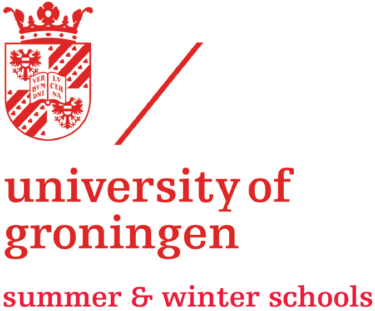
Lugano, Switzerland
Exploring Causal Complexity with Qualitative Comparative Analysis (QCA)
When:
11 August - 22 August 2025
Credits:
0 EC
Read more
Social Sciences & Educational Sciences Summer Course
When:
10 July - 10 July 2025
School:
University of Groningen Summer Schools
Institution:
University of Groningen
City:
Country:
Language:
English
Credits:
0 EC
Fee:
615 EUR


Increasingly omnipresent, AI evokes strong responses that range from fear and confusion to fascination and idealization.
How can we move past the hype and leverage AI effectively to further the work of fostering individual and organizational development across differences?
Learn about the potential of generative AI in your intercultural, DEI, and related work: Explore real-world strategic AI use cases for trainers and how to appropriately, ethically implement them.
Why Attend?
This course will help you to understand, practice and learn how to apply within your own training / teaching / consulting practice AI’s abilities to enhance efficiency and create engaging, personalized content while mitigating its risks and limitations, such as amplifying biases:
- First, understand the state of the art in terms of relevant generative AI tools and abilities.
- Then, explore use cases for AI ranging from the everyday (automating routine tasks) to the strategic (enhancing workshop design, inspiring audiences with new interactive formats, simulating realistic intercultural interactions to let learners to practice their skills in safe and controlled environments, etc.).
- Discuss different ethical considerations and limitations around AI and how to use it responsibly.
- Finally, develop and practice hands-on skills in creating, analyzing, and modifying AI content using a real-world assignment and / or your own project.
Dr. Stephan Ruppert
Participant profile
This course is for you if you are a trainer/multiplier/educator/consultant who is
- Seeking to understand (more) ways in which AI can enhance your effectiveness and reach.
- Interested in exploring ethical considerations around AI as relates to intercultural, DEI, global learning and similar work: What are watch-outs and limitations? What are our responsibilities in using AI?
- Looking to try out different AI tools and test various potential strategies while receiving expert guidance and feedback from fellow colleagues.
You should already have at least a preliminary understanding of and experience with —either through your own work or participation in ‘training for trainers’ type programs— intercultural, DEI, global learning, and the greater Differences field.
Contact the organisers at ic@rug.nl or info@iddifferences.org if you have questions about the suitability of this course for your circumstances.
Level requirements
The DAD is for multipliers who help individuals, organizations and societies better recognize, appreciate and use differences as a way of better communicating, working and thriving together.
These are (in-house and external) trainers, educators, consultants, coaches, researchers, scholars, facilitators, HR staff, advanced-level (MA+) students, and professional development specialists with 5+ years of experience/study in the greater Differences field. Contact the organisers at ic@rug.nl or info@iddifferences.org for consultation about appropriateness and eligibility.
It is expected that the participants have a sufficient command of the English language to actively participate in the discussions and to present their own work in English.
In this course, you will learn how to help yourself and those you work with so that you/they can better:
- Appreciate the fundamentals of generative Artificial Intelligence as specifically relevant to intercultural / diversity / related training / learning facilitation.
- Consider a wide variety of AI use cases (illustrated by real-world examples) that can strengthen your work.
- Establish personal ethical guidelines for the use of AI in your work.
- Develop / strengthen AI skills using relevant tools and strategies.
Workload
6 hours of in-class learning and active participation using experiential methods.
Upon successful completion of the programme, the Summer School offers a Certificate of Attendance that mentions the workload of 6 hours (28 hours corresponds to 1 ECTS). Students can apply for recognition of these credits to the relevant authorities in their home institutions, therefore the final decision on awarding credits is at the discretion of their home institutions. We will be happy to provide any necessary information that might be requested in addition to the certificate of attendance.
Fee
615 EUR, includes course and materials, optional evening programming
When:
10 July - 10 July 2025
School:
University of Groningen Summer Schools
Institution:
University of Groningen
Language:
English
Credits:
0 EC

Lugano, Switzerland
When:
11 August - 22 August 2025
Credits:
0 EC
Read more

Tallinn, Estonia
When:
14 July - 18 July 2025
Credits:
2 EC
Read more

Nottingham, United Kingdom
When:
07 July - 18 July 2025
Credits:
5 EC
Read more